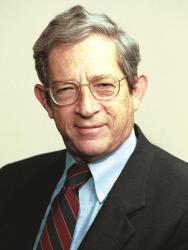

2:00 pm EDT - 3:00 pm EDT
Past Event
2:00 pm - 3:00 pm EDT
1775 Massachusetts Ave., NW
Washington, DC
The controversial 2005 civilian nuclear agreement between the United States and India is widely seen as the lynchpin of the relationship between the world’s two largest democracies. The agreement gives India access to U.S. and international nuclear fuel, equipment and technology to generate energy for India’s booming economy. In exchange, India must separate its military and civilian nuclear facilities, placing the latter under international safeguards. While the agreement addressed certain critical proliferation issues, it has been widely criticized within India and the United States for its internal and regional implications.
On July 30, the Brookings Institution hosted a panel discussion on the future and implications of the India-U.S. nuclear agreement. The panel featured Brookings President Strobe Talbott, who as deputy secretary of state led negotiations with India following its 1998 nuclear tests; former Under Secretary of State Nicholas Burns, who was the United States lead negotiator on the nuclear agreement; and Robert Einhorn, senior adviser at the Center for Strategic and International Studies. Brookings Senior Fellow Stephen P. Cohen provided introductory remarks and comments.



Ghulam Omar Qargha
March 4, 2026

Richard C. Bush, Ryan Hass
March 4, 2026

Gerónimo Gutiérrez, Kimberly Breier
March 4, 2026